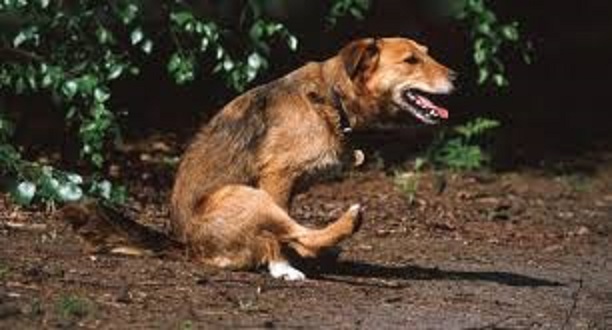
Blog

Dog Scooting: Why It Happens and When To See The Vet
October 3, 2019
The sight of your dog dragging its butt across the floor might look funny (unless it’s on your carpet), but dog scooting is no laughing matter and may be giving you a clue that there’s a problem with your furbaby.
Why does it happen and what does it mean and when should you see the vet?
The biggest reason for scooting if there is an itch or pain “back there”. If their butt is bothering them, they will generally drag it on the carpet, grass or concrete to scratch their itch. Many things can cause the itch, but most of the time it’s caused by impacted or infected anal glands.
Dogs have two small sacs on either side of their anus that contain a very smelly liquid that is excreted whenever they poop. Most people think this is how dogs mark their territory, adding some extra smell to their poop that is uniquely theirs. In a normal, healthy dog the stools are hard enough that the glands express themselves. If your dog has loose stools or irregular bowel movements that don’t press against the anal glands you may find that they can develop inflammation of the anal glands.
Inflammation prevents the liquid from being excreted normally and becomes too thick, so it can’t be expressed normally, causing the anal glands to become full and uncomfortable. This can, in some cases also lead to infection and abcesses.
Rarely, the scooting could also be caused by intestinal parasites such as tapeworms, injuries or tumours in the anus, rectal prolapse or allergies. In addition to scooting, you might notice your dog licking their back end excessively.
What to do?
If you notice your dog scooting occasionally, you don’t need to rush to the vets, sometimes they just have an itch and want to scratch it. You should keep an eye on them and check how often they are doing it but an occasional scoot is no cause for concern.
If your dog is scooting for more than a few days, it might be time for a vet visit. Your vet can do a rectal exam, just to see what is going on with the anal glands and to check for any signs of inflammation. Your vet can also do a faecal exam and look for any signs of intestinal parasites.
If the anal glands are full or impacted, the vet may need to express them, however your vet should help you to determine the cause of the problem rather than just treating it symptomatically by manually expressing the glands.
It’s important to try to re-establish the tone and health of malfunctioning glands using a combination of dietary adjustments, homeopathic remedies and natural GI anti-inflammatories. Sometimes manually infusing the glands with natural lubricants or herbal preparations can help return them to normal function.
The goal should be to resolve the underlying cause and return your dog’s anal glands to self-sufficiency. If your dog doesn’t have anal gland issues you should tell both your groomer and your vet to leave these little glands completely alone to avoid future problems down the road.
How to Stop Anal Gland Issues
Adding fibre to your dog’s diet can firm up their stools, making it more likely that the glands will be able to express on their own when the dog poops as they empty with the pressure of the stools. You could try adding pumpkin to your dogs’ food. There are also commercial anal gland supplements containing fibre available.
Chronic Issues
Some dogs develop impacted or full anal glands and may benefit from having them expressed manually on a regular basis, however expressing them when there are no problems is not necessary and will likely cause harm.
If there is no problem, the anal glands should be left alone. Routine expression of the anal glands is pointless and unpleasant for both the dog and the human and can be potentially harmful, so if you take your dog to the groomer, make sure to mention that anal gland expression is not needed as over time expressing them can result in the inability for them to function on their own.
The anal sacs are delicate little organs that can be easily injured through squeezing and pinching. They were meant to function optimally on their own without mechanical squeezing. Trauma to the glands causes tissue damage and inflammation, which in turn causes swelling.
If your dog is having recurrent or chronic anal sac issues, it’s important to identify the root cause rather than repetitively treating the symptom by manually expressing the glands. If your dog’s poop is frequently unformed, sort of watery, their anal glads aren’t getting the pressure they need to empty and you should investigate the cause of the soft stools. Feeding a balanced and appropriate diet should address most food sensitivities and stool consistency.
Recent Posts
- Why Our Dogs LOVE Autumn April 8, 2024
- Canine Anxiety – How To Recognise and Treat It March 15, 2024
- Recognising Hot Spots and What To Do To Prevent Them February 13, 2024
- Dalmatian Dog Breed Facts January 8, 2024
- How To Keep Your Christmas Tree Safe With The Family Pet December 11, 2023